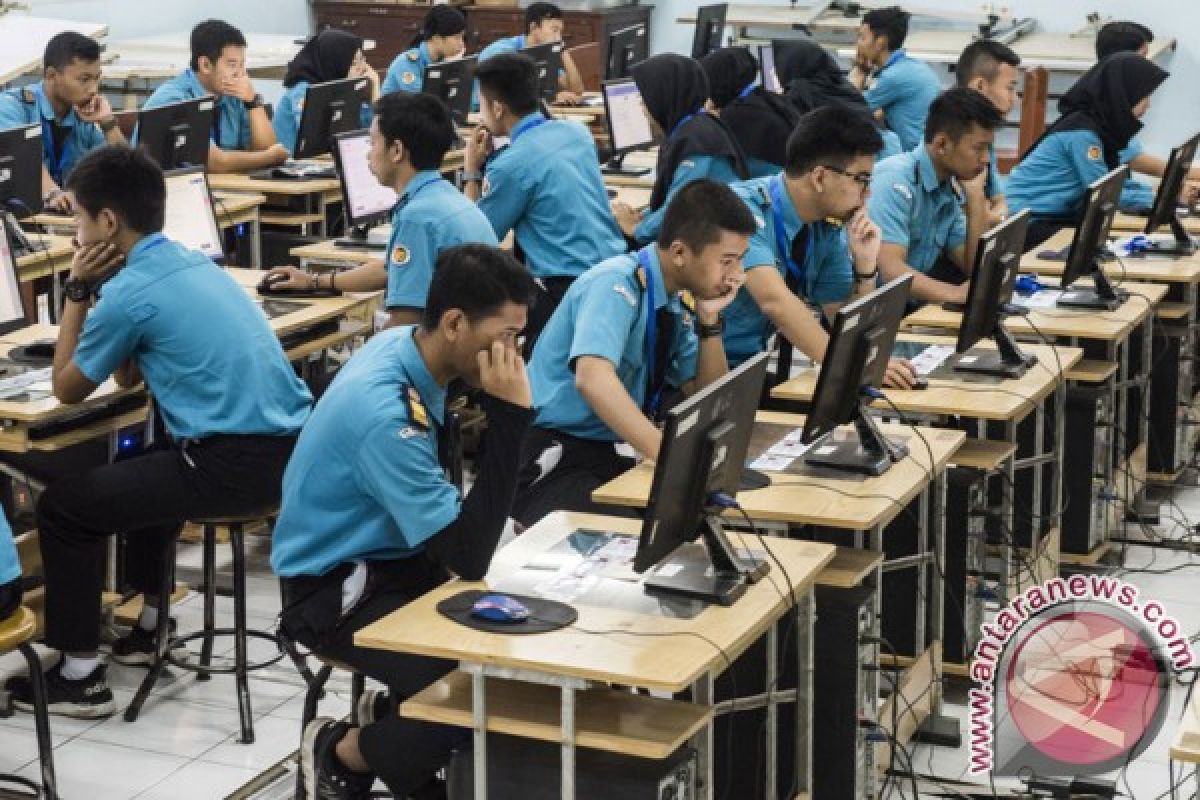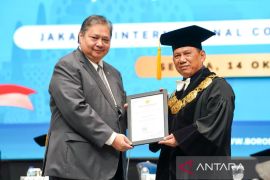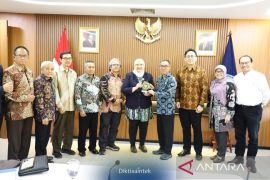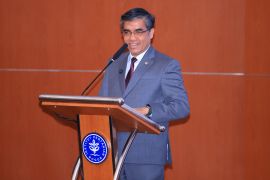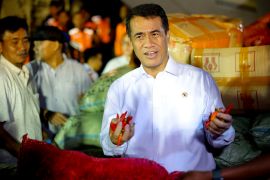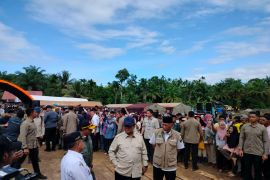"Through vocational education and professional certification programs, our students are immediately ready to work after graduation," Jokowi stated.Jakarta (ANTARA News) - The future of Indonesia depends on human resources of good quality, excellence, and strong competitiveness in the face of global competition.
Improving the quality of human resources through education and vocational training must be one of the keys to successful national development in the future.
For the past four years, the government of Indonesia has focused on strengthening education and vocational training to produce skilled human resources who are ready to enter the workforce.
The fast-growing productive generation in Indonesia will push the country to work harder to create new jobs by increasing the competitiveness of investments and exports.
Indonesia has entered the High Human Development category due to the increasing quality of life of the country`s people. Indonesia`s Human Development Index increased from 68.90 in 2014 to 70.81 in 2017.
In his annual state of the nation address before the Parliament, prior to the 73rd Anniversary of Independence Day on Aug 17, 2018, President Joko Widodo (Jokowi) remarked that the government encourages a connection between expertise taught in various vocational schools and the need for excellent industrial development skills in each region.
"Through vocational education and professional certification programs, our students are immediately ready to work after graduation," Jokowi stated.
Further, the head of state noted that the government will also open vocational training centers in various Islamic boarding schools as part of improving Indonesia`s human resources expertise.
At the higher education level, the president hopes that Indonesia will have the courage to make various breakthroughs, in order to make its people ready to be competent in the future.
Hence, the universities in Indonesia must dare to break old habits. They have to be brave enough to bring up new study programs that reflect the reality of the current and future skills needs.
Jokowi believes that the university`s breakthrough steps will be welcomed by the young generations who are eager to make a leap of progress.
Through the development of human centrists, the president believed that Indonesia would struggle to become a winning nation and be able to face various major challenges.
In an effort to create human resources of good quality, who will become the nation`s leaders, the government also continues to overcome the stunting problem, which is feared to be a threat to the golden generation in the future.
Finance Deputy Minister Mardiasmo noted that Indonesia has a sufficient budget to deal with the problem of stunted growth in children.
According to him, the state budget funds disbursed to deal with cases of stunting in 2018, amounting to Rp47 trillion, were allocated to a number of ministries and institutions, plus Rp93 trillion which was channeled to the regional governments through village funds.
However, the finance deputy minister acknowledged that the lack of cooperation from various parties was an obstacle to achieving Indonesia`s target of being free from stunting in children.
Therefore, there must be seriousness from stakeholders, including relevant ministries/institutions, the private sector, and NGOs, to design appropriate strategies in handling cases of stunting in a number of regions.
Stunting also poses a threat to Indonesian human resources in the demographic bonus period if the population of productive age at that time is not qualified.
The serious threat will have an impact on the economic loss, as the Minister of National Development Planning Bambang Brodjonegoro had remarked that according to the results of the study from the World Bank, the potential economic losses caused by stunting reached two to three percent of Gross Domestic Product (GDP) per year.
It means that if Indonesia`s GDP reaches Rp13,588.8 trillion in 2017, the economic losses caused by stunting can reach Rp400 trillion per year.
On the contrary, intervention to reduce stunting will bring economic benefits of 48 times the investment incurred.
A small matter of insufficient nutritional intake in a mother and her child can have a massive impact on the economy in the future.
The Director General of Information and Public Communication of the Ministry of Communication and Informatics, Niken Widiastuti, explained that stunted children are not only seen in poor and underprivileged families but also in non-poor families that are above 40 percent of the level of social and economic welfare.
In its effort to combat stunting rates in Indonesia, the government included a reduction in stunting into the 2015-2019 Government National Medium Work Program target.
Stunted growth in children is often regarded as a hereditary factor that it is ignored. But the minister has encouraged parents to monitor the process of child growth and development, especially in the first one thousand days of life.
Parents and families are believed to play an instrumental role in preventing the occurrence of cases of low height or stunted growth in toddlers.
Several factors, including the lack of parental attention, can lead to nutritional deficiency in children.
Indonesia is ranked fifth in the number of cases of stunting in children due to three factors, namely poor sanitation, improper handling of infections in children, and lack of parents? attention to the child`s nutritional intake.
Identified by the World Health Organization as impaired growth and development in children due to poor nutrition, repeated infections, and inadequate psycho-social stimulation, stunted growth is not solely observed in poor families.
Stunting is experienced by children in 47 countries, including Indonesia, with the indicator still referring to a comparison between weight and age.
In terms of stunting, the National Demography and Family Planning Agency (BKKBN) will play its role in raising awareness among parents to participate in the fight against stunted growth.
One of its programs called the Family Planning Village, better known as "Kampung KB," aims to assist such parents.
Edited by Yoseph Haryadi
Reporter: Otniel Tamindael
Editor: Heru Purwanto
Copyright © ANTARA 2018
